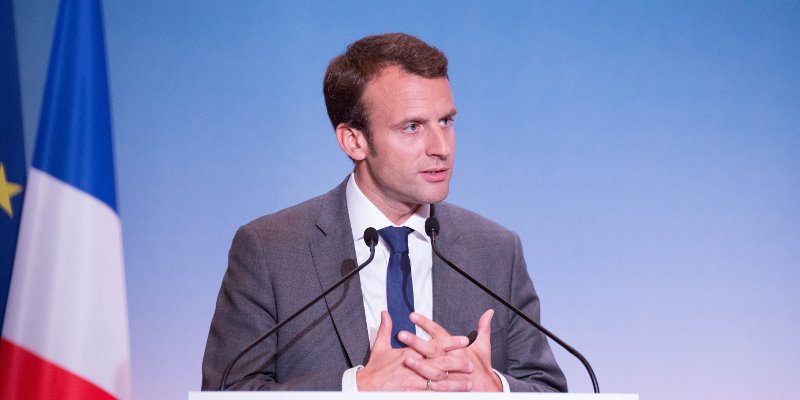The French Riviera is by far the most popular area for property investment on the Mediterranean.

Hugh Wade-Jones is managing director of Enness International
Following Emmanuel Macron’s (pictured) victory in the French election, the Euro reached its highest level against the dollar since November. The markets were already reflecting this positivity following the first round at the end of April as the pro-EU candidate looked to be in a strong position.
Interest rates are expected to remain low for property buyers – now the threat of a Le Pen win has been removed – meaning France will retain its position as a key location for investment from high net worth investors. Indeed, experts are remaining positive on Eurozone markets, expecting them to outperform the US, giving further confidence to investors.
What will President Macron mean for the French property market?
Emmanuel Macron has stated he wants wealth tax specifically to “focus on real estate”, not productive investments (criteria greater than €1.3m net worth). The wording is still vague but this could very well mean property owners will be penalised – thus, there is an increasing need to look at mortgage options to decrease net worth of property and navigate what could be an incoming large exposure to the tax.
Macron has also pledged to encourage housebuilding by ensuring regulatory and fiscal stability, increasing investment in French residential property. He also plans to increase housing stock in areas of short supply, increasing access to the housing market.
Since Francois Holland became President in 2011, the property market in France dropped around 10%, only turning a corner around six months ago, with positive – albeit small – growth starting to show. Additionally, domestic and foreign buyers are still spending money in France – particularly in areas like the French Riviera and Paris – removing any concern over the strength of the housing market.
How is the French property market faring at the moment?
When looking at our own data, the French Riviera is by far the most popular area for property investment on the Mediterranean. This is largely due to the investment micro-climate making properties there some of the best performers in the whole of France.
Further West; Antibes, Cannes and Nice remain hotspots for the more moderately priced, yet no less fantastic, properties. Cannes remains a popular area for expats, particularly property investors, since seasonal demand for accommodation can be so great, you can often finance a holiday home’s mortgage just by renting out the property for 1-2 months of the year during Cannes Film Festival.
Overall, up to 75% of investment (price weighted) in Mediterranean property on the coast of France is carried out between Toulon and Menton, with the ‘Alpes Maritmes’, ‘Var’ and ‘Bouches du Rhone’ regions being by far the safest – albeit most expensive – areas to invest.
With Euribor having remained negative for the last two years, and no expectations of an increase, and interest rates available sub-2%, it’s an exceptional time to borrow in France. We are seeing a real appetite – particularly from the French private banks – to lend. However, it is worth noting French private banks prefer to take on high quality clients, who they can have a long-term relationship with. Additionally, providing a client agrees to invest other assets with the bank, 100% mortgages are common, as this mitigates the liability for wealth tax.
The prospect of Brexit brought uncertainty and challenges to the property market, but this did not appear to be the case with France. Furthermore, increased certainty brought with the election should continue to help with transaction volumes and house prices. There is currently good value to be found in the medium to long term – but investors should do their research as France is a gathering of micro-climates, each with their own merits and challenges.



